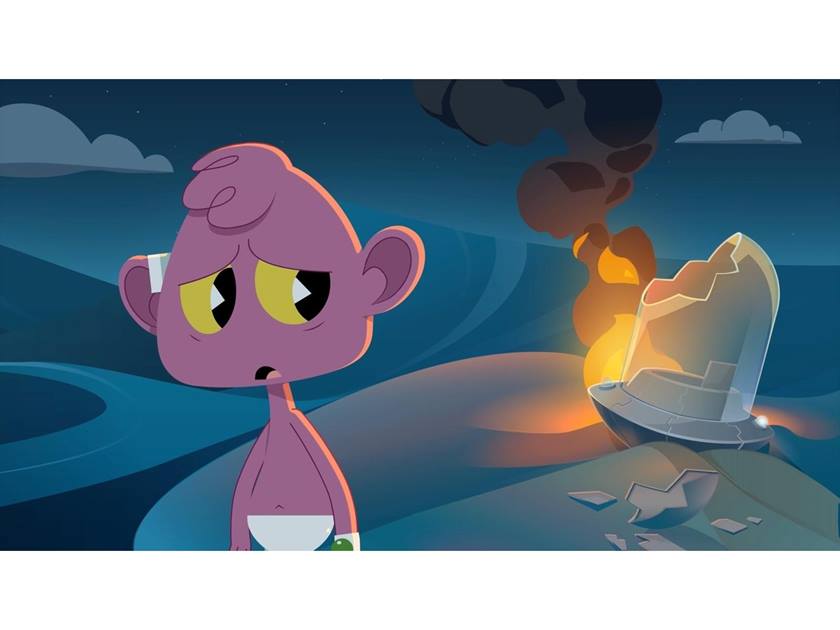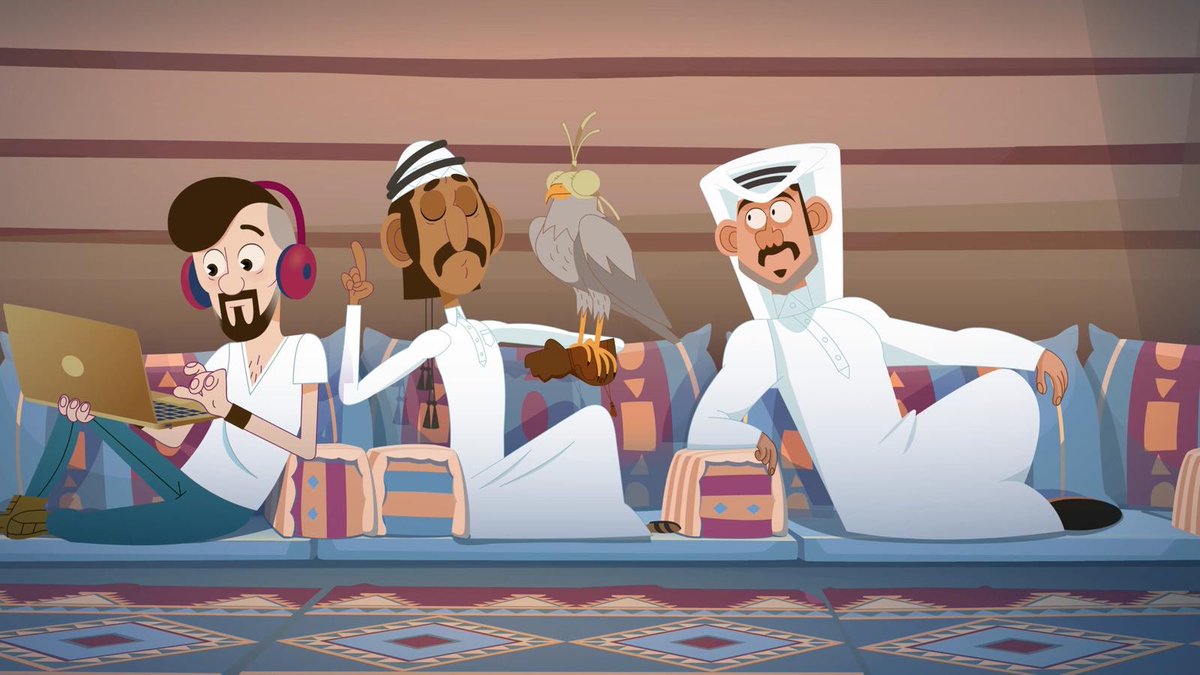The 11 minute episodes follow the story of Kawkabani, a lost alien in Qatar.
With Qatar under the global spotlight as the host of the FIFA 2022 World Cup, young Qataris have launched the first animated local web series called ‘Kawkabani’, after the main character of the show. Kawkabani is derived from the word kawkab, which means planet in Arabic.
Qatar’s News Agency (QNA) reported that the five-episode series, which is in Arabic, aims to introduce the global audience to the local culture whilst promoting the major sporting event.
It was produced by Nefaish Animation Studio, written and scripted by Qatari writer Amal Al Shammari, and directed by Hossein Heydar.
The show’s 11-minute episodes follow the story of Kawkabani, a lost alien in Qatar. The alien, who has never missed a World Cup, crashed his spaceship in the Sealine desert on his way to the sporting event in Qatar.
Luck appears to be in Kawkabani’s favour when he is found by three Qatari young men who guide hime around the country and introduce him to the culture.

Commenting on the purpose of animation, Heydar said that the approach itself is a global language that can be understood by people of all ages and nationalities. He said that the series is the result of the creators’ cooperation with different local entities and talents in an effort to compete with a global market.
Heydar is the co-founder and managing director of Nefaish animation studio and Al Shammari is the co-founder and creative director of the entity. The studio aims to provide innovative story-telling methods to connect with a wider audience.
The first episode is going to be available on Nefaish’s YouTube channel on the first day of Eid, which is astronomically taking place on 2 May.
The show is backed by Qatar’s World Cup organising body, the Supreme Committee for Delivery & Legacy (SC). The project has also been supported by the Doha Film Institute (DFI) and Vodafone Qatar.
The series received the Spring 2019 grant from the DFI.
The intro song of the series was posted by Nefaish on 20 April on YouTube to give the audience a glimpse of the Qatari production. It showed a small pink alien whose eyes widen as passes by attractions in Qatar and spending time at the ‘majlis’ with the men who found him.
Nefaish studio also created a Twitter account for Kawkabani under the handle KawkabaniQ for people to follow his story.
Importance of culture
With up to 1.5 million football fans expected in Qatar for the World Cup, several initiatives have been introduced to provide a cultural experience for foreign visitors.
Last year, the SC announced its launch of the ‘Host a Fan’ initiative, a first-of-a-kind project that allows households across Qatar to volunteer to host visiting fans during sports events.
The idea behind it was to promote the quality of hospitality in the country, which as an integral part of the Qatari culture.
It is free-of-charge and will be limited to hosts and fans who are fully vaccinated, in line with Ministry of Public Health’s preventative regulations to battle the spread of Covid-19.
The Supreme Committee also unveiled the World Cup’s mascot this month, La’eeb, which translates to ‘super-skilled player’ in Arabic. The character is inspired by the Qatari traditional attire headdress, the ghutra.
The big reveal was made on 1st of April during the FIFA Final Draw in Doha.
“La’eeb encourages everyone to believe in themselves as ‘Now is All’. He will bring the joy of football to everyone,” FIFA stated on its website.
Culture has also been integrated in different football stadiums. This includes the Al Bayt Stadium, which resembles a traditional tent that was historically used by nomadic people.







